‘What is rugby?’: New film Brothers on Three documents the game at West Point
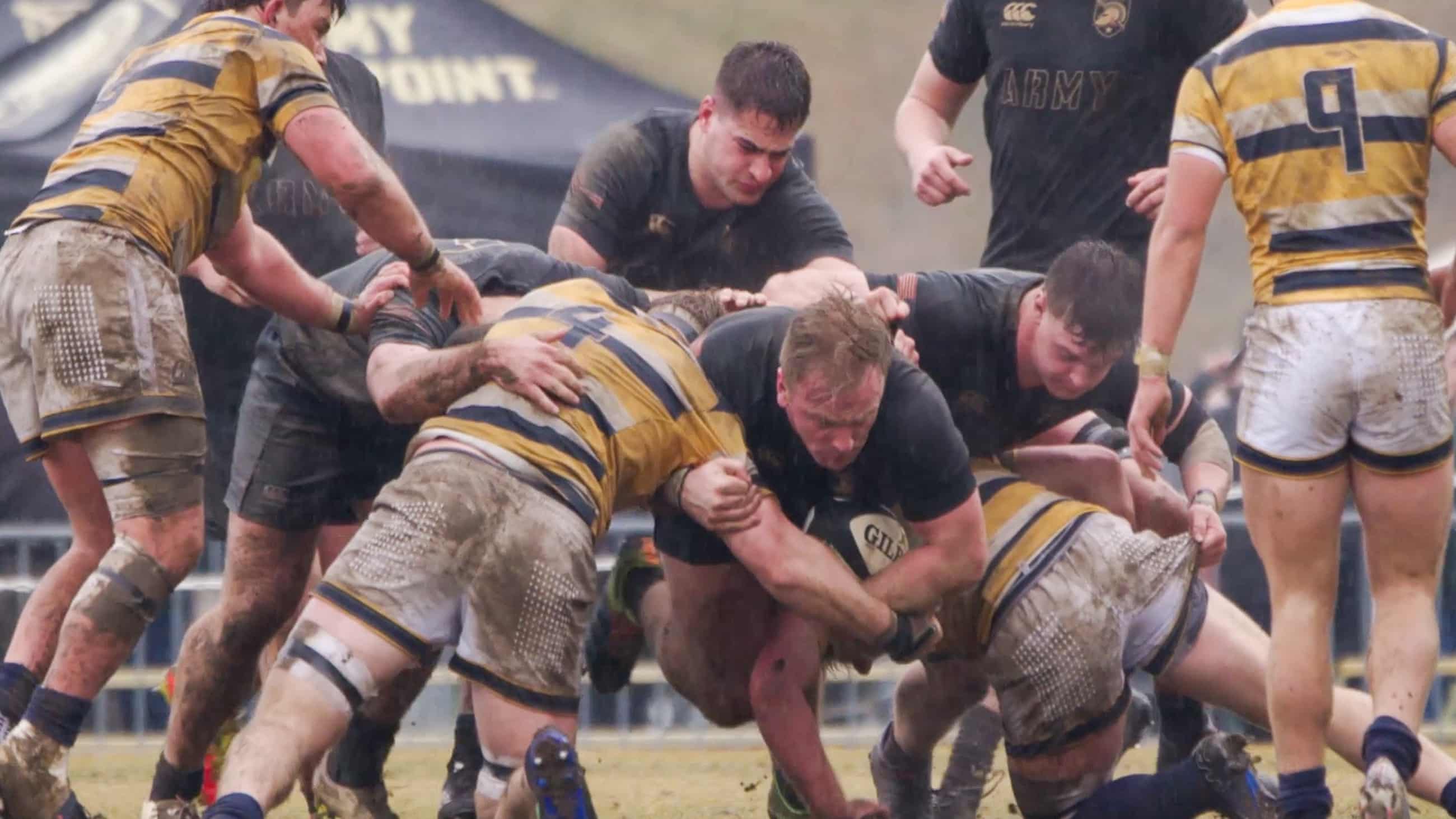
With unprecedented access to one of the top US college programs, director Sean Mullin uncovers raw stories of love and lossAt the United States Military Academy at West Point, rugby has the best winning record of any men’s sports program,Brothers on Three, a new documentary about the team out this week, begins with scenes of wild joy from Houston, Texas in 2022, when the Black Knights beat St Mary’s, from California, to win their first US college title,And yet director Sean Mullin’s film is shot through with loss,There are losses, of course, on the field,Mullin and writer-producer Brian Anthony are West Point grads, rugby players too.
They set out to follow their successors through the 2022-23 season, as they defended their title under captain and prop Larry Williams, 2022 US player of the year.Things started well, with seven wins in a row.But then Navy, time-honored foes, beat Army 27-14.After that, Mullin’s cameras followed Coach Matt Sherman and his team as the wheels came off.“I’ve been told that West Point rugby players get promoted to general at a much higher rate than their classmates,” Williams says, in the final film.
“After winning that national championship.I thought I knew why, but I didn’t.“I realized that being a good leader isn’t about how much you win, it’s how you handle loss.”In one raw scene, in a film made behind doors normally closed, Williams is shown failing in that challenge.After a heavy defeat at Lindenwood in Missouri, in a locker room littered with mud and torn tape, Sherman asks his captain to speak.
Williams searches for words that just won’t come.“I got nothing,” he mumbles.By the end of the movie, the team has lost its national crown — to Navy — and its captain, Williams suffering a bad ankle injury.After Lindenwood, Mullin also captures striking film of Conor Fay, blindside flanker and team poet (charged with composing odes for the bus and the bar), ear ripped and bloodied, gore leaching onto his shirt.Later, in the second of three punishing defeats by Navy, Fay makes a tackle and falls in evident pain.
“Another fuckin’ knee,” Sherman exclaims, off camera.“Jesus.”Nobody said rugby, or West Point, was easy.But as the academy is an academic and physical pressure cooker, channeling brutal training and strenuous classroom standards, so Mullin and Anthony capture how West Point rugby takes tropes familiar from the world game — close bonds of brotherhood (or sisterhood), sometimes regrettable behavior, usually regrettable singing on the bus, pain shared and dealt in turn — and presents each in fierce relief.There are considerable ups, including an unlikely play-off win over Davenport and the exuberance of branch night, when fourth years, “firsties”, learn in what form of arms they will serve.
There are considerable downs.The final defeat in the playoffs — by fuckin’ Navy, again — is dealt with quickly, as if just to get it done.Rugby is only a game.But what a game.Mullin shows why so many love it.
There is pure adrenalin, raucous laughter and even ragged beauty in close-ups of tackles and kicks, rucks and mauls, straining scrums and leaping lineouts, pre-match huddles ending in shouts of “Brothers on Three!”But Mullin’s film also looks beyond the field — where loss returns to the frame.Like Mullin, Ian Weikel graduated West Point in 1997.After 9/11, Mullin served at Ground Zero.Weikel went to Iraq.Mullin’s film includes footage from Weikel’s time in-country, explaining how to survive a convoy in the war of the IED.
On 18 April 2006, in Balad, Weikel’s vehicle struck such a roadside bomb.He was killed.He was 31.In other old footage, under the hum and crackle of old VHS, Weikel holds his infant son, Jonathan, or reads books for his boy to listen to when his father goes away to fight.There is footage of Weikel’s funeral at Arlington National Cemetery in Virginia, horses pulling the coffin on its artillery caisson.
Over more VHS, of Weikel making a tackle at West Point, his widow speaks to camera.“Rugby meant so much to Ian,” Wendy Green says.“When I first met him, he said, ‘You gotta come to my rugby game.And I was like, ‘What is rugby?’ I went and I remember him coming to the sideline to me, sticking his tongue out and he just looked like this adorable puppy covered head to toe with mud and dirt.I was just smitten.
I was like, ‘Okay, I love rugby.’ We fell in love.”Love runs through Mullin’s film too.Twenty-one Army rugby players have died in service of their country.In the very first scenes of Brothers on Three, of the great night in Houston in ‘22, a big, bearded old player in Army cap and t-shirt congratulates hooker Matthew Meehan, shouting the name of the hooker in his own West Point team.
“I’m class of ‘02,” the veteran says, beaming, showing a tattooed arm.“Jimmy Gurbisz was killed in Iraq in ‘05.You left that jersey better than when you found it, brother.”Which is where I come in.In 2002, Gurbisz was part of a West Point team that toured to London, where they played against my club.
Years later, from New York, I wrote a piece and then a book about that team, about what happened to them in the wars after 9/11,Writing the book, I got to know the big, bearded veteran in Mullin’s movie: it’s Bryan Phillips, my opposite number in the second row 23 years ago,I met Mullin and Anthony too,On sidelines and in banqueting halls, at memorials, in screening rooms, we talked,And now, in the early scenes of their finished film, I’m there, onscreen, helping with the set-up: telling American audiences what this strange game is and why so many cadets love it and each other so much.
So I can’t claim to be an impartial reviewer.Not even close.I was present for a ceremony that now forms one of the most poignant scenes in the film: the scattering of the ashes of Clint Olearnick, another ‘02 player, gone too young, on the West Point field on a blazing fall day.Mullin and his crew capture the silent contemplation of team-mates saying farewell to their brother.Clint’s widow, Diane, and daughter, Zosha, share in the bonds of his team.
And yet, one great loss looms over all of Brothers on Three.Michael Mahan graduated West Point in 1970, commanded troops, made lieutenant colonel, came back up the Hudson to teach.He never played rugby but ended up coaching it, for 16 seasons all told, seeing the martial sport — “war minus the shooting”, said George Orwell — as the perfect vehicle to teach future leaders in combat.Last summer, at 76, Mahan died.His funeral was in Massachusetts.
Old players came from all corners of America.Shots were fired over the grave.Mullin and Anthony dedicate their film to Mahan, giving him first and last words.Over the end credits, he explains his role in helping set up Women’s Army Rugby (WAR), a thriving varsity program.Next Friday, 14 November, his old players will gather again at West Point, for a screening of Brothers on Three and, next day, during the big game against Navy, the unveiling of a memorial statue.
For everyone else, Brothers on Three premieres in Los Angeles on Thursday, then plays at selected cinemas across the US.Martin Pengelly writes about rugby in the US at The National Maul
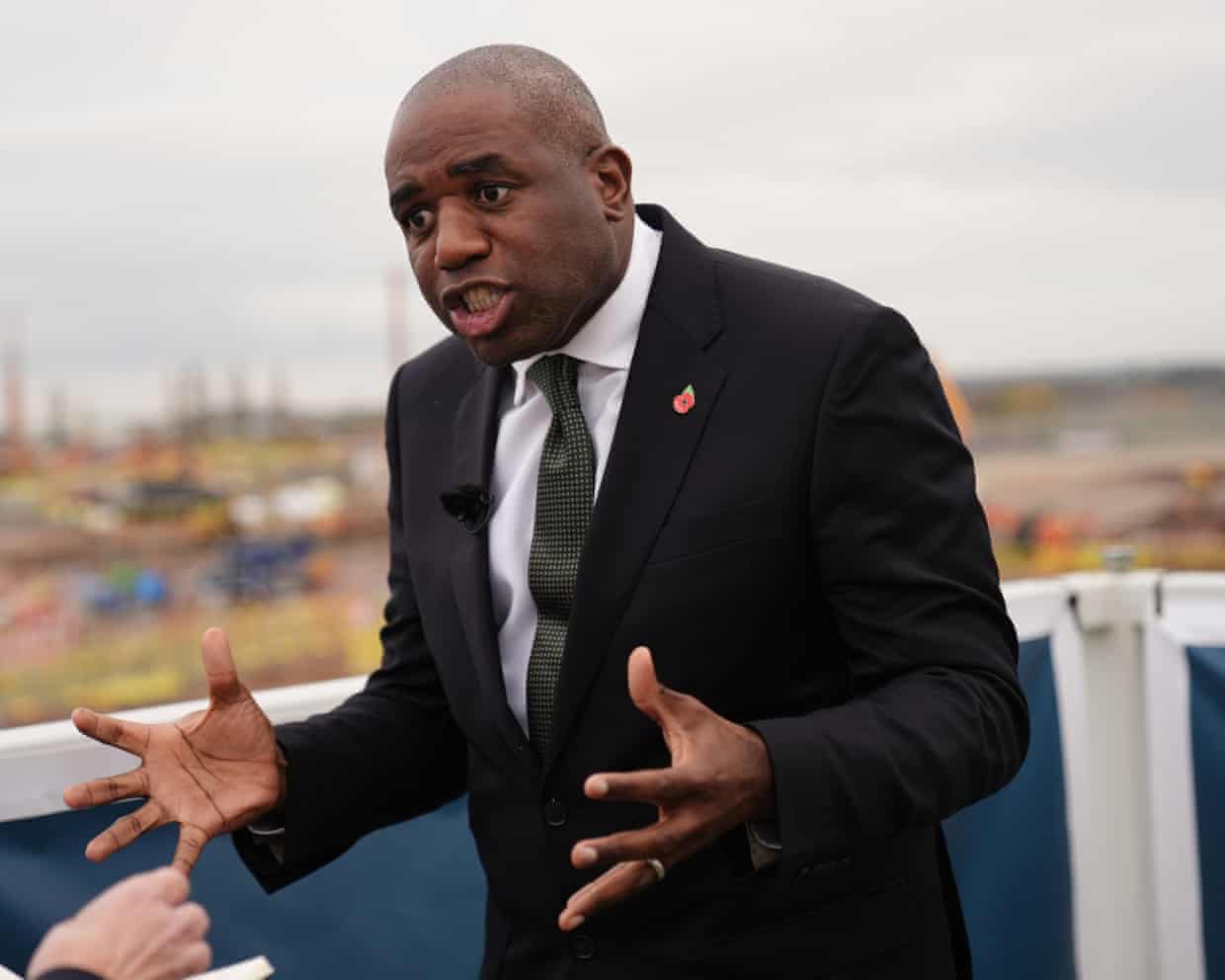
Lammy says he was not ‘equipped with the details’ when facing questions on mistaken prisoner release at PMQs – as it happened
David Lammy has recorded a pooled interview about the prisoner release mistakes reveaved after yesterday’s PMQs. There were three main lines in the excerpt available so far.Lammy, the deputy PM and justice secretary, defended his decision to dodge questions at PMQs yesterday about whether there had been another prisoner let out by mistake. The Conservatives have strongly criticised him for this, with Chris Philp, the shadow home secretary, saying that Lammy’s non-answer was “dishonest”, and Robert Jenrick, the shadow justice secretary, saying Lammy’s PMQs performance was “a disgrace” and “a dereliction of duty”. (See 9
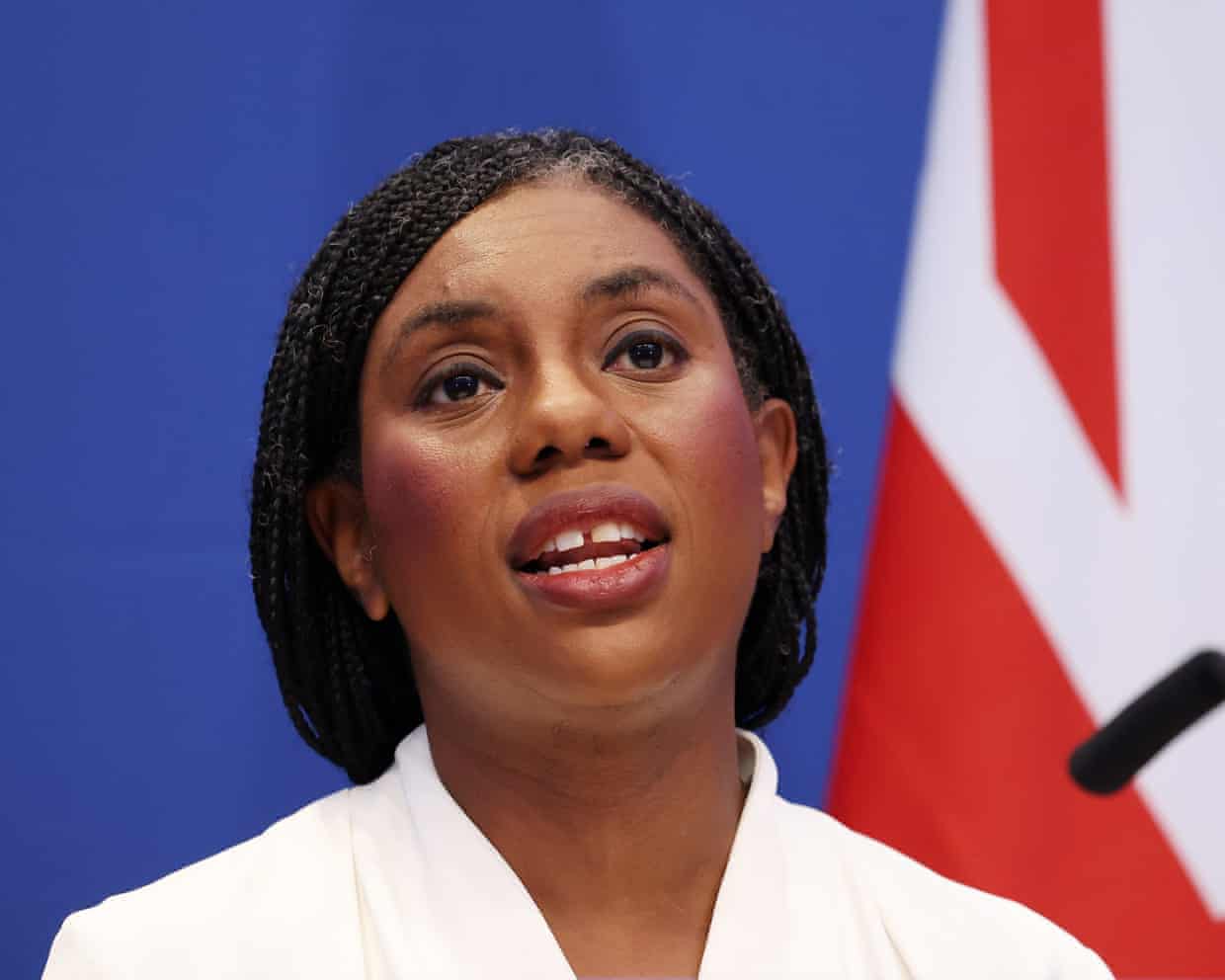
Badenoch accused of ‘interfering’ in lobbying scandal linked to Cameron
Lex Greensill has accused Kemi Badenoch of “interfering” in an insolvency case “for political ends” as the last Conservative government sought to protect David Cameron from scrutiny for his involvement in a lobbying scandal.The financier, whose companies paid Cameron millions of pounds, claimed that the current Tory leader used her former ministerial position as business secretary to restructure an inquiry into his activities.Greensill alleged that the move was made to protect Cameron as he was elevated to the House of Lords in November 2023 and brought back into government as the foreign secretary.The allegations were made in a letter sent to the current business secretary, Peter Kyle, as Greensill contests the possibility of being disqualified from company directorships for up to 15 years.Greensill claimed the decision to omit Cameron’s involvement from the Insolvency Services’s inquiries meant the case against him should be dropped because it was “based on allegations that have no merit and little or no evidence”

Labour MPs revive ‘desperately needed’ soft left group to take on Reform
Senior MPs who were the architects of the Labour welfare rebellion are to revive a powerful caucus on the party’s soft left to influence the budget and beyond, in a move likely to further unnerve No 10.The former cabinet minister Louise Haigh and Vicky Foxcroft, a former whip who resigned to vote against welfare cuts, are to take the reins of the Tribune group with the aim of giving an organising voice to their wing of the party.Key figures in the group, which hopes it will attract more than 100 MPs to revitalise the caucus, were major players in Lucy Powell’s successful deputy leadership campaign.They also include the former minister Justin Madders, Sarah Owen, the chair of the women and equalities committee and Debbie Abrahams, the chair of the work and pensions select committee. Two other new MPs will also steward the group – Yuan Yang and Beccy Cooper
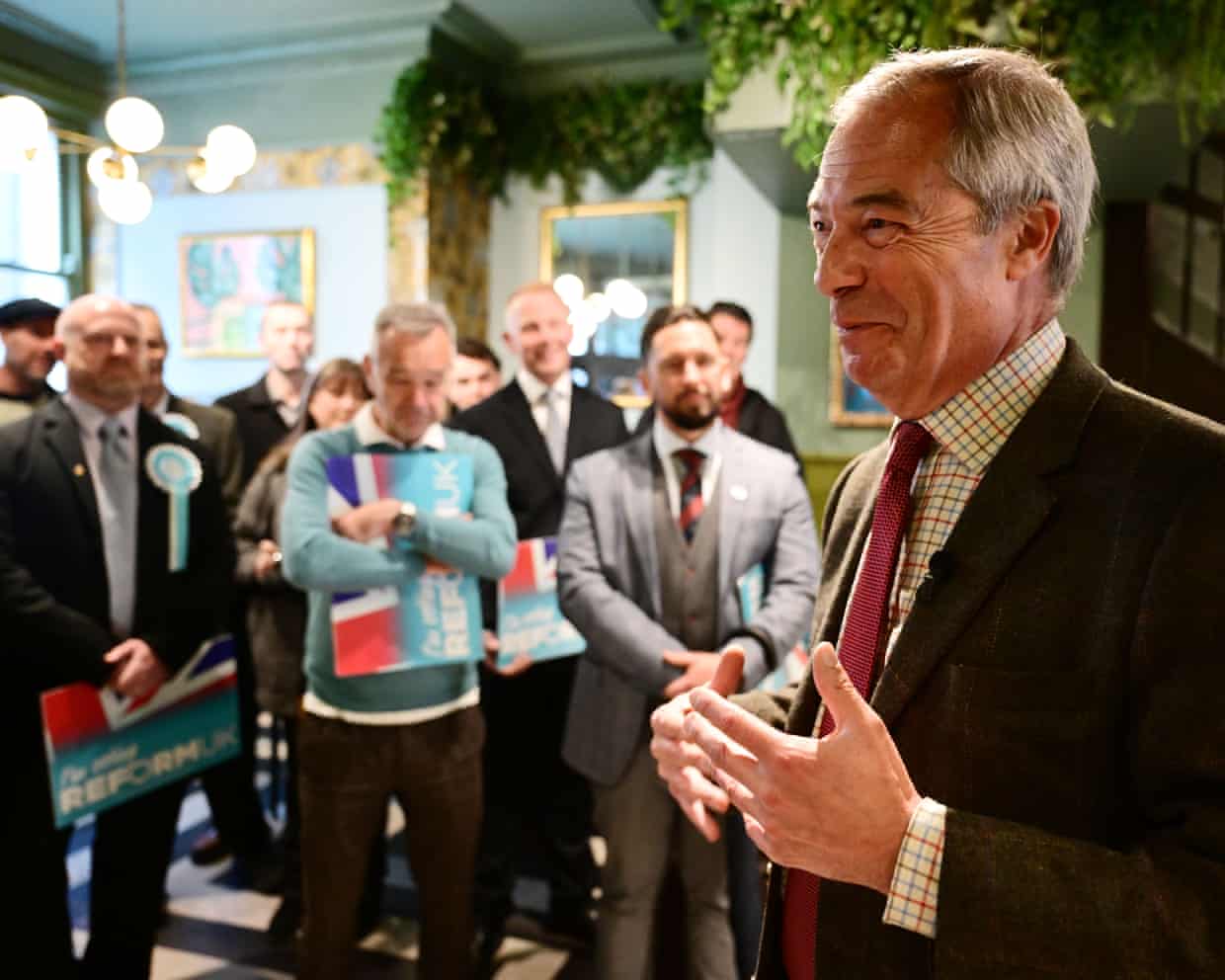
Lancashire’s Reform-run council plans to close care homes and day centres
Lancashire’s Reform-run council has been accused of “selling off the family silver” through its plans to save £4m a year by closing five council-run care homes and five day centres and moving residents into the private sector.One of the care home residents, a 92-year-old woman, said she would leave only by “being forcibly removed or in a box”.Another resident’s son, a Reform party member, said any move would “kill” his mother, and he vowed to quit the party if the closures went ahead.Questions are also being asked about a potential conflict of interest involving Reform’s cabinet member for social care in Lancashire, who owns a private care company with his wife.Reform UK took control of Lancashire county council (LCC) from the Conservatives in May, winning 53 of the 84 available seats
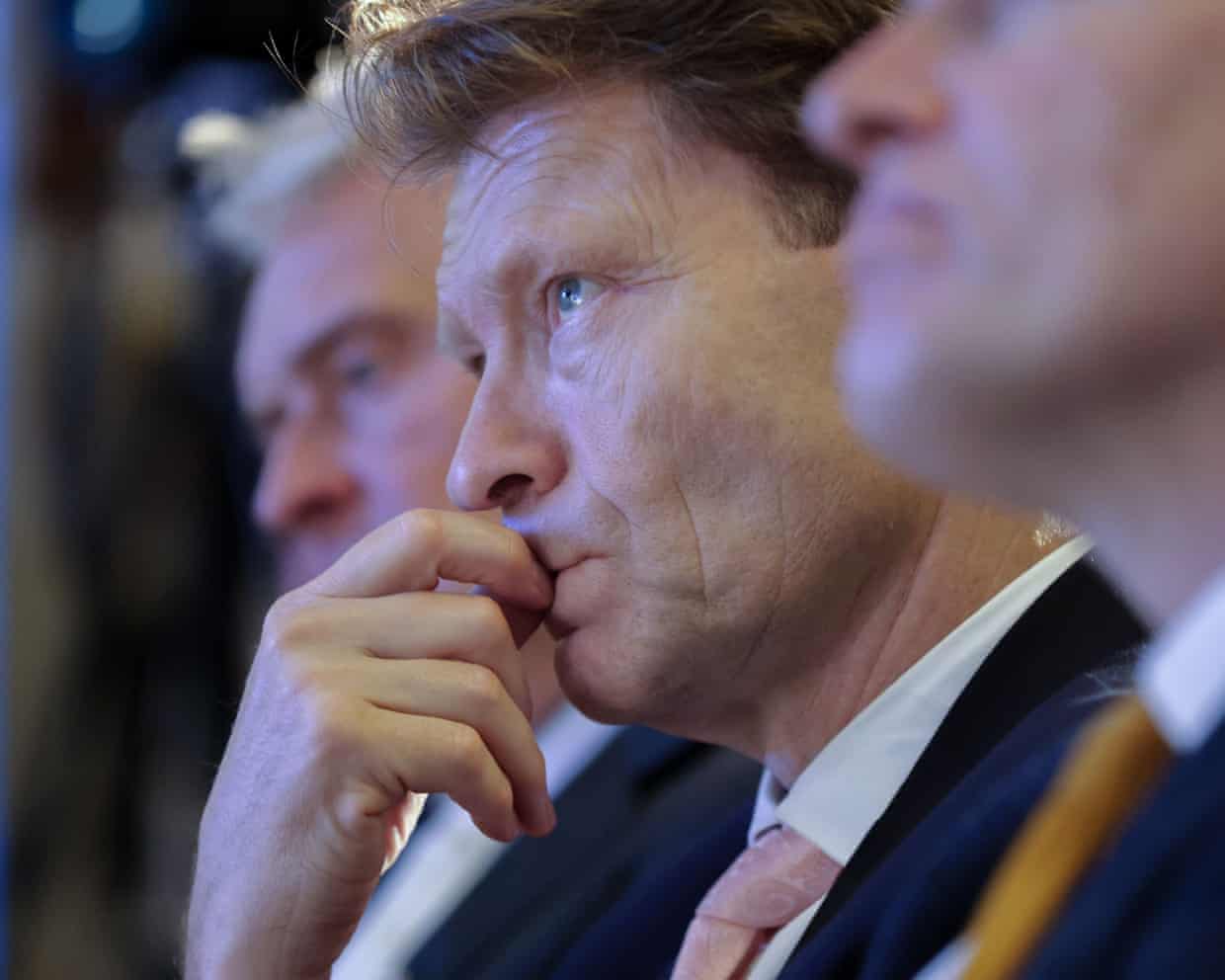
Reform’s public-sector pensions plan could cost billions extra, union warns
Reform UK’s plans to make public-sector pensions less generous could cost billions extra a year and cause a ticking timebomb in the public finances, a leading trade union has warned.Prospect said the plans unveiled by the party’s deputy leader, Richard Tice, would damage the public finances rather than save money “and end up costing taxpayers tens of billions of pounds in the years to come”.The union challenged Tice after he said he would want to change public-sector pensions from a defined benefit system to a defined contribution scheme for new entrants, a move that would mirror what has happened in the private sector and would result in less generous payouts in retirement.A defined benefit scheme gives a guaranteed annual income for life after retirement, while a defined contribution pension provides a pot that can be drawn on until it runs out.Tice said he believed Prospect had misunderstood the changes he proposed and that the move would help the country avoid a slide into bankruptcy on the back of huge unfunded pension liabilities, which he said ran into trillions

London mayor sees parallels in Zohran Mamdani’s victory: ‘Hope won’
Sadiq Khan, the city’s first Muslim mayor, says: ‘We are united by something far more fundamental, our belief in the power of politics to change people’s lives for the better’While the soon-to-be first Muslim mayor of New York, Zohran Mamdani, was in the final throes of his mayoral campaign on a brisk day in New York, Sadiq Khan, the first Muslim of mayor of London, was wrapping up a two-day climate summit in a steamy if overcast Rio de Janeiro.“Hope is not gone,” Khan told the 300 city mayors gathered in the Brazilian city’s museum of modern art.The London mayor was referring to the challenges faced by regional politicians in dealing with the climate emergency in the face of the scepticism or outright denial of the science by national governments – including that led by Donald Trump.But on hearing of Mamdani’s win, Khan suggested that this too had given him hope. London and its mayor have been repeatedly raised by figures such as Trump’s former chief of staff Steve Bannon as the disastrous outcome that New Yorkers had to avoid

US stock market values tumble amid reports of high layoffs and hiring freezes

British Airways to offer free fast onboard wifi to all after Starlink deal

How Tesla shareholders could make Elon Musk the world’s first trillionaire

Amazon sues AI startup over browser’s automated shopping and buying feature

‘The goal is to win all the final races’: Norris raises bar before São Paulo GP
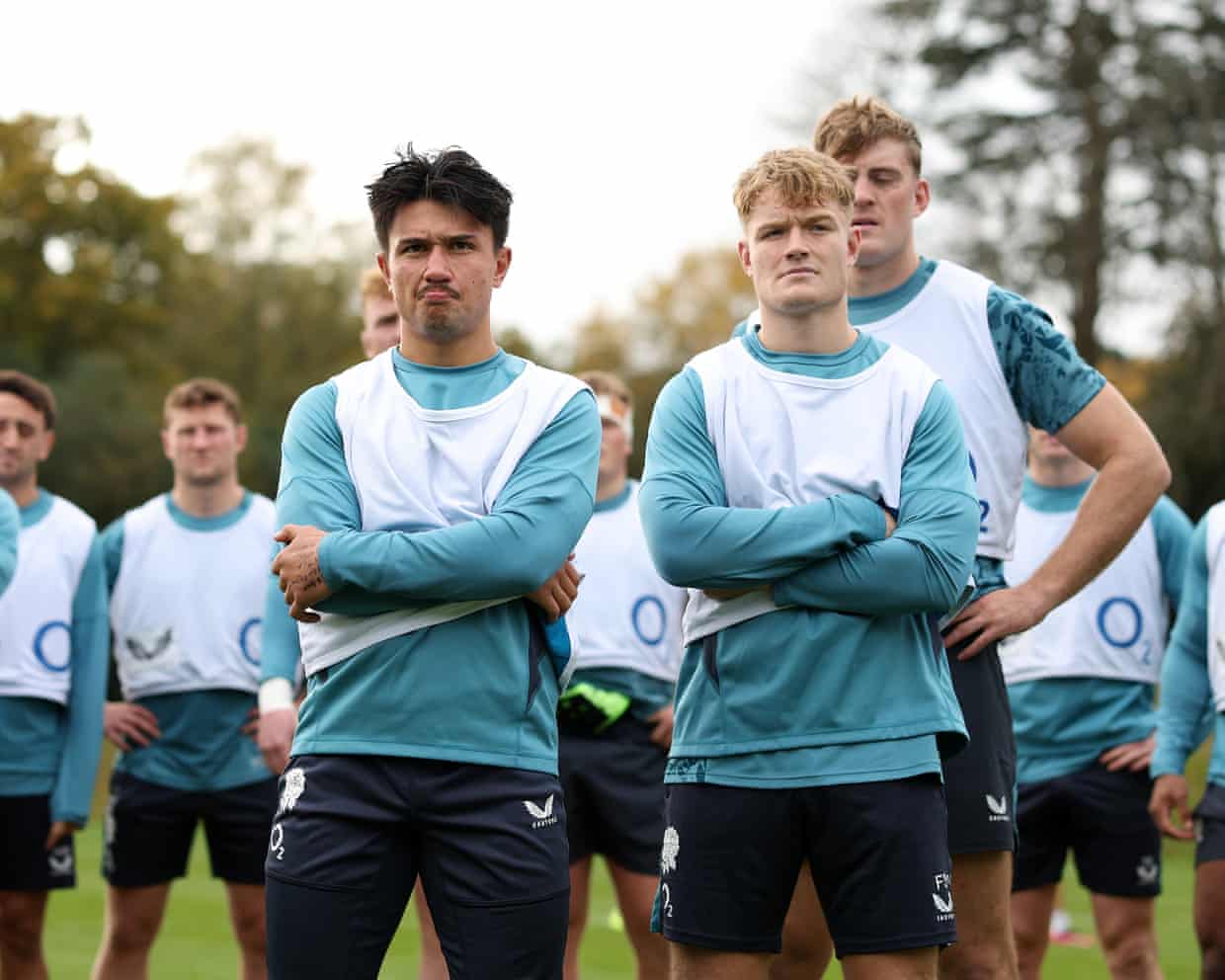
Marcus Smith urged to kickstart England attack against Fiji after setbacks